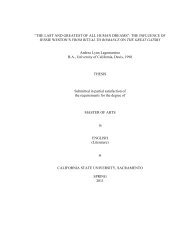COMMUNITY ACTIVISM IN OAK PARK: COMPETING AGENDAS ...
COMMUNITY ACTIVISM IN OAK PARK: COMPETING AGENDAS ...
COMMUNITY ACTIVISM IN OAK PARK: COMPETING AGENDAS ...
Create successful ePaper yourself
Turn your PDF publications into a flip-book with our unique Google optimized e-Paper software.
Abstract<br />
of<br />
<strong>COMMUNITY</strong> <strong>ACTIVISM</strong> <strong>IN</strong> <strong>OAK</strong> <strong>PARK</strong>:<br />
COMPET<strong>IN</strong>G <strong>AGENDAS</strong> FOR CHANGE <strong>IN</strong> A GENTRIFY<strong>IN</strong>G NEIGHBORHOOD<br />
by<br />
Rose Regina Garcia<br />
Statement of Problem: Through an ethnographic analysis of activism in Oak Park, a<br />
working-class neighborhood of Sacramento, California, this work explores conflict in the<br />
ways different community groups define social change and reveals how different<br />
perspectives on such change and competing strategies of neighborhood improvement help<br />
shape residents’ claims to the city.<br />
Sources of Data: Data were gathered by the author’s participation in community groups<br />
and non-profit organizations in Oak Park and observation of their attempts to improve the<br />
quality of life for residents in the community. The author’s fieldwork was further<br />
substantiated by the use of extensive anthropological and sociological research in print,<br />
as well as a small amount of research from other fields. In addition, the author made use<br />
of historical news articles from the Sacramento Bee as well as the Sacramento News and<br />
Review, a news and entertainment publication.<br />
Conclusions Reached: Efforts to improve the quality of life for residents occur through<br />
revitalization projects, grass-roots projects, labor organizing, and programs of non-profit<br />
agencies. The ethnographic data highlight the ways that community groups are<br />
facilitating social change in the gentrifying neighborhood of Oak Park. Although the<br />
community groups’ agendas for social change are aimed at improving the quality of life<br />
for residents, their efforts are heterogeneous and different strategies to facilitate such<br />
change are fueled by various notions of social change of the middle-class, women, and<br />
activist residents.<br />
Analysis of the data suggests that groups’ efforts to improve the quality of life for<br />
residents in Oak Park are counterproductive and do not improve the quality of life for all<br />
residents, especially the poor. Moreover, the author perceives the occurrence of what are<br />
often referred to as “dilemmas of activism.” While these projects benefit the overall<br />
quality of life for the middle-class and promote a middle-class lifestyle, they in fact<br />
contradict their own objective, which is to improve the quality of life for the poor. Poor<br />
v



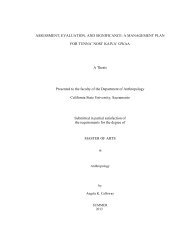
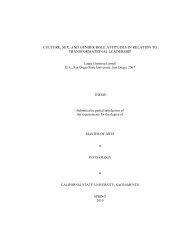
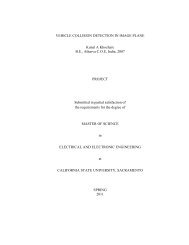
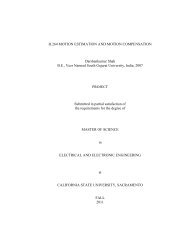
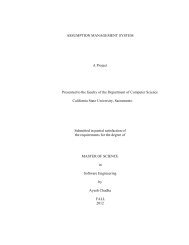
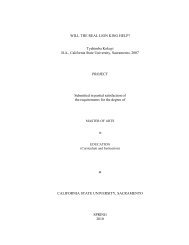
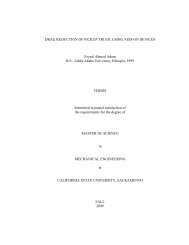
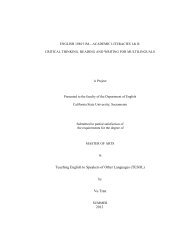
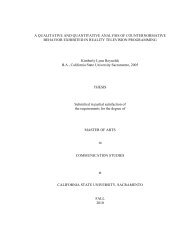
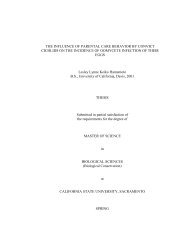
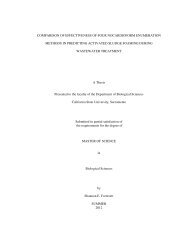
![Completed Thesis to Grad Studies[Final3].pdf](https://img.yumpu.com/17538645/1/190x245/completed-thesis-to-grad-studiesfinal3pdf.jpg?quality=85)
